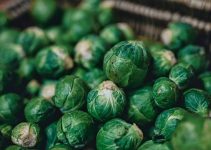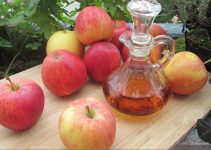Suppose you have gained weight over the years and don’t know why you should look at what you drink. This is one of the most important things to keep in mind to change your long-term dietary changes positively.
The question is: are you drinking your calories? If you have gradually gained weight and have difficulty losing weight, chances are you are drinking your calories.
The Problem
You should know that the body needs energy even for its essential functions, such as growth and repair.
This energy comes from the food we eat (carbohydrates, proteins, fats, and alcohol), and energy is measured in two ways: calories or kilojoules.
One calorie equals 4.2 kilojoules.
Thus, when you consume beverages other than water, you consume significant amounts of energy.
A 250 ml can of Coke contains almost the same amount of energy as an apple (about 100 calories). This doesn’t seem like much. However, these drinks can quickly add up.
For example, the consumption of an average person can be something like this:
- 2 regular espresso latte coffees, one for breakfast and one later in the morning.
- 1 can of a soft drink (375 ml) at lunch.
- 2 cups of tea with a tablespoon of sugar each, one in the afternoon and one after dinner.
- 1 protein shake after physical activity.
- 1 glass of wine with dinner.
Thus, if you add up all these drinks, you obtain a quantity greater than 740 calories per day added to the food you consume.
Just because they don’t fill you up doesn’t mean they aren’t providing you with energy.
Awareness
One of the main problems with drinking calories is that we generally consume them when we are doing something else.
In this way, it isn’t easy to be aware of the amount of energy you are consuming.
Keep in mind that poor food awareness is why many people who have these drinking habits still don’t realize why they can’t lose weight.
The scenario is more or less like this:
- You drink a coke while you’re working.
- You drink coffee or hot chocolate every time you take a break from work or meet up with friends.
- You have a cup of iced tea whenever you are thirsty.
- You buy a drink whenever you buy your lunch and the vendor asks you what drink you are going to accompany the meal with.
- You have a glass of wine while you’re cooking dinner.
Poor Appetite Control
Another big problem with drinking calories is that the body does not feel full, so you do not stop consuming other foods and drinks later during the day.
According to research, people who drink soft drinks daily do not necessarily eat less. In fact, in most cases, drinking soft drinks and other similar beverages are associated with higher food consumption.
Regular consumption of beverages high in sugar leads to poor blood sugar control from a hefty dose of sugar into the body. This often increases cravings and causes mood swings.
Low Nutrient Density
On the other hand, most sugary drinks contain very few nutrients. In this way, they offer energy but low fiber, vitamins, and minerals.
In this sense, it is not enough to control the amount of energy we consume. It is also essential to know the nutritional contribution that each meal gives us.
It is best to skip the high sugar drinks and moderate the consumption of milk drinks such as coffee or hot chocolate to obtain your daily energy needs from more nutritious foods such as vegetables, fruits, legumes, nuts, seeds, whole grains, etc.
How to Ditch Your Unhelpful Drinks
The first thing you should do is increase your water intake. Many times you drink high-calorie beverages simply because you are thirsty.
Thus, if you make sure to stay hydrated, you will eliminate the physiological reasons you want to drink sugary drinks.
On the other hand, gradually reduce the consumption of caffeinated beverages for a few weeks.
Also, be sure to eat nutrient-dense foods. You need to regain control over your appetite, and eliminating sugary drinks from your diet can lead to cravings if you are not eating well.
In this sense, if you skip meals or do not eat enough, it won’t be easy to eliminate sugary drinks from your diet.
It is also advisable to write down the number of calories each drink you consume gives you. By having a clear image, it is easier to reduce your consumption.





